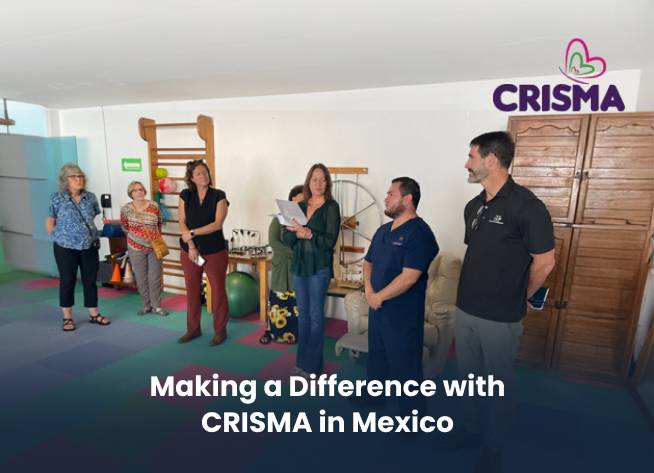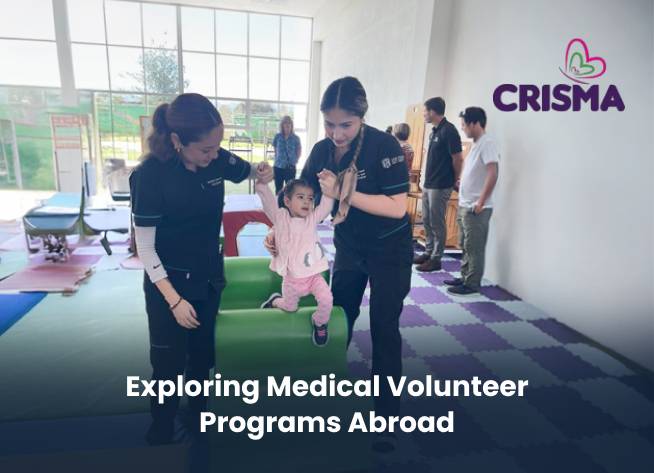For students pursuing a career in healthcare, there are moments when textbooks and classrooms are simply not enough. To truly understand the heart of medicine, one must step into real communities, hear real stories, and be part of real care. This is where medical volunteer programs create a life-changing bridge between theory and practice. They open the door for students to connect with patients across cultures, witness the realities of global healthcare, and contribute meaningfully to the well-being of others.
International opportunities in medical volunteering go far beyond skill development. They shape empathy, resilience, and cultural sensitivity – qualities no exam can measure, but every great healthcare professional must possess.
Why Medical Volunteer Programs Are Transformative
Medical volunteer programs allow students to apply their classroom learning in settings that often differ vastly from their own. In under-resourced communities, the absence of advanced medical infrastructure challenges students to think creatively, adapt quickly, and work collaboratively.
These experiences do more than enhance technical skills. They build the ability to listen deeply, communicate across language barriers, and appreciate the cultural values that shape healthcare delivery in different parts of the world. For many students, volunteering abroad becomes a turning point in their career journey – a moment when they see medicine not just as a science, but as a calling.
Key Benefits of Medical Volunteer Opportunities Abroad
Participating in medical volunteer opportunities abroad offers several important benefits for students at different stages of their education:
- Hands-on learning
Students may assist in basic medical tasks, health screenings, or patient education under the supervision of licensed professionals. - Cultural immersion
Working closely with local healthcare teams provides an authentic understanding of the community’s needs and traditions. - Personal growth
Navigating new environments builds adaptability, problem-solving skills, and emotional resilience. - Global perspective
Exposure to different healthcare systems encourages students to think beyond national boundaries when considering solutions to public health challenges. - Networking
Students meet peers, mentors, and professionals who can guide and inspire their future career paths.
Types of International Medical Volunteer Programs
Medical volunteer abroad programs vary widely depending on the location, duration, and focus area. Students can find opportunities that match their skill level, interests, and career goals.
1. Community Health Outreach Programs
These programs focus on preventative care, education, and basic health services. Volunteers may participate in health fairs, teach hygiene practices, or assist in distributing medical supplies. They are ideal for students seeking early exposure to patient interaction in a supportive environment.
2. Clinical Shadowing Programs
Shadowing experienced healthcare professionals allows students to observe patient consultations, diagnostic procedures, and treatment plans. While direct hands-on care may be limited, the learning value is immense. Students gain insight into clinical decision-making and the patient-provider relationship.
3. Rural and Remote Medical Support
In rural or underserved areas, volunteers may assist with mobile clinics or temporary health posts. The work can be challenging due to limited resources, but it offers a deeper understanding of how healthcare adapts to local needs.
4. Public Health and Research Placements
Some medical volunteer opportunities abroad focus on public health projects such as disease prevention campaigns, health data collection, or environmental health initiatives. These programs are well-suited for students interested in population-level healthcare.
5. Specialized Medical Missions
Certain programs address specific health needs, such as dental care, maternal health, or rehabilitation therapy. These roles may require a more specific skill set, but can be deeply rewarding for students passionate about a particular area of healthcare.
How to Choose the Right Medical Volunteer Program
Finding the right medical volunteer program involves more than just selecting an appealing destination. Students should carefully evaluate:
- Program goals
Does the program’s mission align with your values and career interests? - Level of involvement
Will you be shadowing, assisting, or actively participating in patient care? - Supervision and safety
Are licensed medical professionals guiding the work? Is the program recognized for ethical volunteer practices? - Cultural preparation
Does the program offer orientation or training on local customs and healthcare practices? - Impact and sustainability
Will your contribution provide meaningful, long-term benefits to the community?
It is also essential to consider personal readiness. Volunteering abroad can be emotionally demanding, especially when working in environments with limited resources or witnessing health inequities firsthand.
Preparing for Your Medical Volunteer Experience
A successful experience in medical volunteer programs requires thoughtful preparation and planning. Students should:
- Learn about the host country
Understand its healthcare system, cultural norms, and current health challenges. - Review medical basics
Brush up on common conditions you might encounter and relevant terminology in the local language. - Pack appropriately
Bring necessary clothing, protective gear, and any recommended medical supplies. - Stay healthy
Ensure that your vaccinations are up to date and follow all safety guidelines during your stay. - Keep an open mind
Expect differences in communication, pacing, and available resources.
Flexibility, humility, and respect for local practices are as important as any technical knowledge you bring.
Challenges and Lessons from Volunteering Abroad
While the rewards are great, medical volunteer opportunities abroad can come with challenges. Students may encounter language barriers, resource limitations, or different approaches to patient care. These moments are not setbacks – they are opportunities to learn patience, empathy, and adaptability.
One of the most profound lessons is that healthcare is deeply human. Regardless of geography or technology, the fundamentals of care – listening, understanding, and responding with compassion – remain the same.
Making a Meaningful Impact Through CRISMA’s Medical Volunteer Programs

Participating in medical volunteer programs can be a defining chapter in a student’s medical journey. These experiences shape not only skills but character, fostering a sense of global responsibility and cultural understanding that will last throughout a career.
CRISMA offers some of the best medical volunteer opportunities abroad for international healthcare and pre-med students in Mexico. Our programs combine clinical exposure with meaningful community engagement, ensuring students not only learn but also contribute in a way that is respectful and impactful. By working alongside experienced professionals in diverse healthcare settings, volunteers gain insights that extend far beyond medicine. These insights inspire compassion, fuel commitment, and enrich the overall journey toward becoming a healthcare professional.
FAQs
What can I expect to learn from a medical volunteer program abroad?
A medical volunteer program abroad offers both clinical exposure and cultural understanding. You may assist healthcare professionals, observe medical procedures, engage in basic patient care, and learn about healthcare challenges in underserved areas. This hands-on experience helps you develop practical skills while broadening your perspective on global health.
Do I need prior medical training to join a medical volunteer program?
Many medical volunteer opportunities abroad are open to students without prior clinical training. Roles are often tailored to your level of education and experience, with beginners assisting in non-invasive tasks and advanced students shadowing doctors or taking on more active roles. Always review the program’s eligibility requirements before applying.
How long do international medical volunteer opportunities usually last?
Program durations vary greatly. Some last just one or two weeks, while others extend for several months. Short-term placements are ideal for those with limited availability, while longer stays allow for deeper learning, stronger connections with local communities, and greater contribution to healthcare projects.
What challenges should I prepare for when volunteering in another country?
Volunteering abroad can present cultural, language, and environmental challenges. You may work in areas with limited resources, different medical practices, or unfamiliar social norms. Being adaptable, open-minded, and respectful of local customs will help you navigate these challenges while making the most of the experience.
How can volunteering abroad impact my future medical career?
Participating in a medical volunteer program can strengthen your medical school or residency application by demonstrating global health awareness, adaptability, and hands-on learning. More importantly, it cultivates empathy, cultural sensitivity, and problem-solving skills – qualities that benefit you throughout your medical career.











